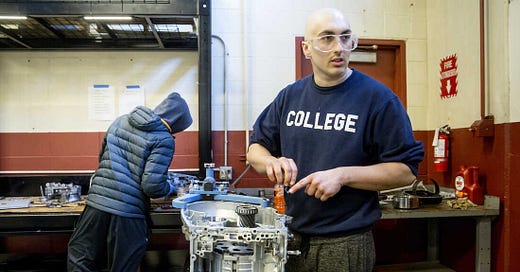Ironworkers for example are in high demand and it still is: the sector is growing 4% annually, according to the Bureau of Labor Statistics. Ironworkers earn, on average, $27.48 per hour, or $57,160 per year, plus benefits.
Raising alarms
While a shortage of workers pushes wages higher in the skilled trades, the financial return from a bachelor's degree is…
Keep reading with a 7-day free trial
Subscribe to Mick, The Doctor of Digital, Smith to keep reading this post and get 7 days of free access to the full post archives.



